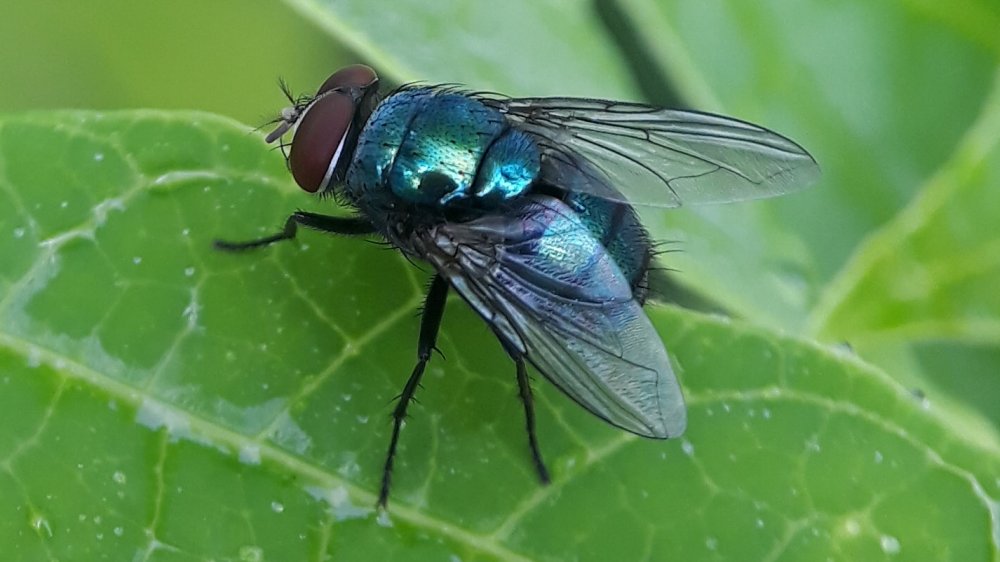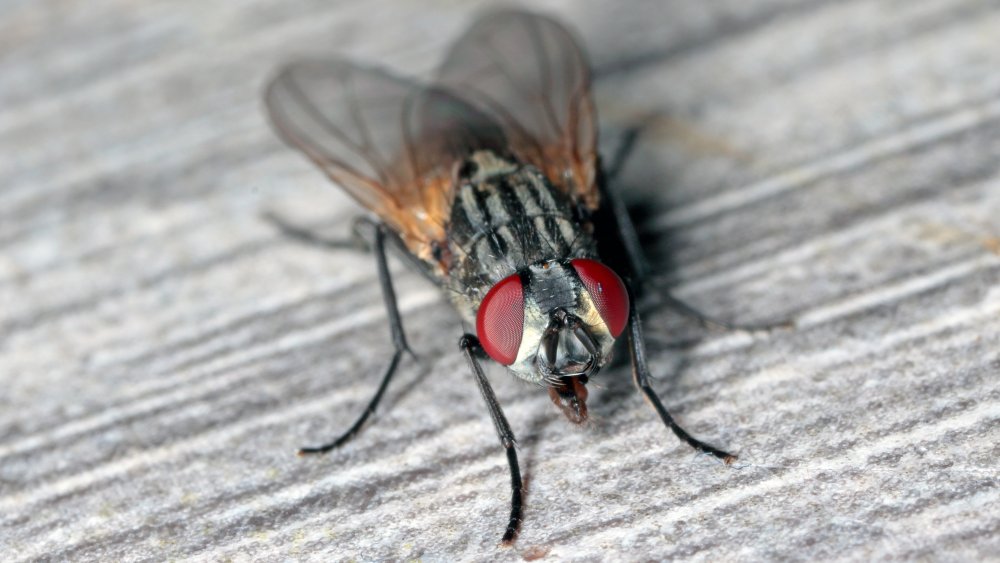Can Flies Transmit COVID-19?
Here are the facts, brought to you by the World Health Organization. Shoes will probably not spread COVID-19, 5G mobile networks certainly won't, nor will mosquito bites. But flies? In 2017, the flyswatter gained more importance than it had ever had before. Flies "carry more kinds of dangerous bacteria than previously suspected," warned Cnet, citing the results of a new study that year. That's not all. According to Penn State, the common housefly may well be responsible for transmitting at least 65 diseases. Typhoid fever, cholera, leprosy, and tuberculosis, for example. Researchers "strongly suspect" they're all spreadable by fly.
But what about COVID-19? Instead of toilet paper, should we have collectively sacked our supermarkets in search of fly-killing pesticides?
Flies likely do not spread COVID-19
No, says the World Health Organization. Flies most probably cannot spread COVID 19. To date, no one has found a scrap of evidence that might lead to that conclusion. If not flies, then what? Let's review the basics. You're most at risk of contracting the virus when someone who has COVID coughs, sneezes or speaks and thereby generates "droplets" that travel through the air and works their way into your system, or onto a surface that you later touch. That's why the CDC recommends social distancing and wearing face masks. It's why it also suggests you regularly disinfect surfaces, and that you wash your hands often and for 20-second intervals. It's also why the CDC doesn't recommend a mass, fly extermination campaign.
While we're at it, here are some other myths that the World Health Organization is intent on busting. Hydroxychloroquine will not cure COVID, nor will consuming bleach, drinking alcohol, or adding pepper to your soup.

